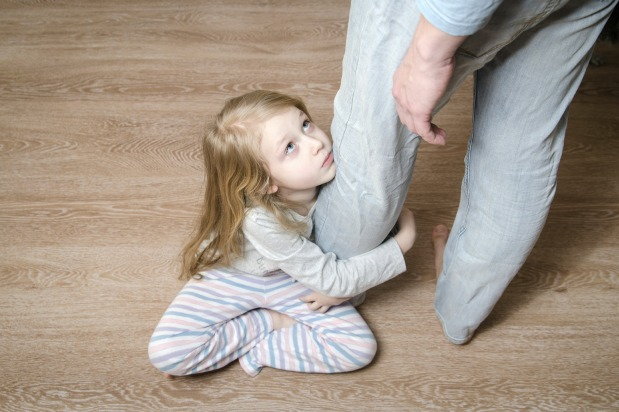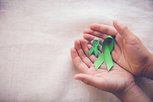 https://www.soberrecovery.com/images/og-image.gif
https://www.soberrecovery.com/images/og-image.gif
 https://cimg2.ibsrv.net/cimg/www.soberrecovery.com/619x412_85/950/Adult-Child-of-An-Alcoholic_Young-Girl-167950.jpg
619
412
https://cimg2.ibsrv.net/cimg/www.soberrecovery.com/619x412_85/950/Adult-Child-of-An-Alcoholic_Young-Girl-167950.jpg
619
412
My Story as an Adult Child of an Addict and How I Finally Chose Life
By Toshia Humphries 619
412
https://cimg2.ibsrv.net/cimg/www.soberrecovery.com/619x412_85/950/Adult-Child-of-An-Alcoholic_Young-Girl-167950.jpg
619
412
https://cimg2.ibsrv.net/cimg/www.soberrecovery.com/619x412_85/950/Adult-Child-of-An-Alcoholic_Young-Girl-167950.jpg
Born into an abusive family riddled with addiction, I observed detrimentally dysfunctional behavior all around me. My mother was addicted to heroin, biological father was absent, and the only grandparents I knew were on my mom’s side. Yet, the latter is somewhat ironic.
My grandmother was an untreated adult child of an alcoholic. She seemingly despised my mother for becoming an addict—at least that’s what her perverted version of tough love conveyed. My grandfather was more forgiving and compassionate and, in my grandmother’s eyes, somewhat enabling. As such, my mother was certainly a daddy’s girl.
Yet, witnessing the chaos of my mother’s lifestyle and being subjected to her abusive, drug-dealing second husband was no safe life for me as a child. As such, my grandparents agreed on one thing: it was necessary to intervene and attempt to save me. They eventually forced my mother to relinquish custody and officially adopted me at age seven.
Of course, for that I am grateful. Shelter, food, clothing and other basic needs would never have been met by my mother in her active addiction. However, a child does need more, and active dysfunction—addiction or not—does not provide the unconditional love, emotional intimacy, sense of belonging, acceptance and self-esteem children need. As such, I was clothed, warm and fed, but I was starved for affection.
My grandmother was a very angry woman. She hated her father and rightfully so. He was a horribly abusive man, an alcoholic and a pedophile. Basically, he was evil incarnate, and her codependent mother, his accomplice.
Additionally, she felt betrayed by her daughter and husband who, incidentally, was also an active alcoholic. This was a reality that left me with the burden of saving her, being the gift from God that made everything horrible in her life make sense. That’s a huge task for one human child to accomplish without error.
Placed on a pedestal built on unreasonable expectations of perfection, I struggled to find a balance within the dysfunctional family roles of the lost child and hero. Born with innate talents and the desire to acquire a few, I sang, danced, played piano, learned guitar, drums and never missed a single day of school. She likely thought I was happy given all I was mastering and experiencing, but I was merely the human equivalent of a household pet learning tricks in an effort to gain her love and approval.
Yet, no matter what songs I sang, masterpieces I wrote or played, or awards I won in school, it was never enough. Little did I know, I was inadvertently attempting to fill a void—an unfillable void—forged inside a little girl long before I was born. And, unfortunately, the woman she had become was unwilling to see the pattern of abuse and addiction she was perpetuating.
With nothing but deadly habits, dysfunction and unhealthy, self-destructive means of coping modeled for me, I searched myself to find a different way. Escapism became an art form in which I’d merely learned to produce necessary distractions with more socially acceptable tools. Athletics, marching band, color guard, choir and numerous academic groups filled my days and nights with diversions from the chaos that was my home life. But, essentially, it also kept me from facing my pain and prevented anyone who might have intervened from noticing the bleeding.
My mother never stayed completely away. She was in and out of rehabs and my life, repeatedly. From attempting to kill herself on our sofa when I was in first grade, to going through heroin withdrawal in our living room, she haunted me—the ghost of what could have been, if not for addiction.
At age 38, when I was a mere twenty years old, she passed away. But not before saying some final words which only a miracle allotted her the ability to say. As everyone prepared me in the hospital room, letting me know her attempts to speak had been deduced to an inaudible mumble—a result of the toxins building up in her system due to the complete destruction of her liver—I simply asked them to leave the room and allow me a private moment with my mother.
“Hey baby,” she said, clearly.
“Hi mom,” I tearfully replied.
“I hope you know how much I love you,” she continued, “and how proud I am of you and all you have become.”
“I know, mom,” I said. “I know.”
“I only left you,” she explained, “because I knew I couldn’t give you all that you needed, and I was aware they could, but I never stopped loving you.”
“I know, mom,” I replied, “and I forgive you for leaving. I understand, and I love you too.”
Immediately, she returned to a steady stream of mumbling. I simply held her hand and simultaneously let go of someone I never had. At this moment, I’m aware she never even had herself.
Years passed with more loss and ever-growing dysfunction. I was spinning from one sick family role to the next. The hero was one I visited less and less. Scapegoat had become my favorite part to play.
The scapegoat role is likely the healthiest of the dysfunctional roles—the lesser of five evils. Kids within that role are typically acting out, filled with anger and rage. Still, that’s a better place to be than in denial. It’s progress.
Eventually, I shut the only remaining member of my immediate family and main abuser—my grandmother—completely out of my life. With the suggestions of three counselors backing up that decision, I chose me over some socially constructed obligation to relentlessly tie myself to abuse, addiction and the continuing dysfunctional cycle that was my childhood. After all, though addiction is a disease, staying active in it or permanently tied to it is a choice. And, somehow I knew, if I didn’t cut off that cancerous, toxic part of me, I’d die too. It was one of the hardest things I ever chose to do.
I acquired personal counseling for nearly a decade in an attempt to recover from post-traumatic stress disorder and all that comes with being an adult child of an addict and a survivor of abuse. Basically, I was healing a tortured soul, a pulverized heart and a shattered self-esteem. It was work—painful and frightening—just like physical therapy for someone who has suffered a life-threatening injury. Indeed, these were life-threatening injuries, and I had endured them for decades.
Ultimately, I received three degrees in counseling and psychology with, of course, a focus on addiction. It often seemed somewhat humorous to me, the idea that I was attending classes to learn about a disease and the family dynamics of it, as if I was ignorant to both. But, thankfully, it turned out to be more than just red tape.
The knowledge I gained not only helped explain the pain and the causes of it. That information gave me personal empowerment and the means to turn a lifetime of negative experiences into inspiration for writing, creating, empowering and coaching others on their paths of personal growth. As such, the ways my family chose to sabotage themselves and unintentionally sought to destroy me became the fuel that fed and continues to feed an eternal, vibrant and passionate flame.
My saving grace was a choice. By choosing myself, I not only dodged a bullet—I put down the gun. The gun that my dysfunctional family gave me; the one I once aimed at myself; and the one that I courageously, obstinately walked away from.






